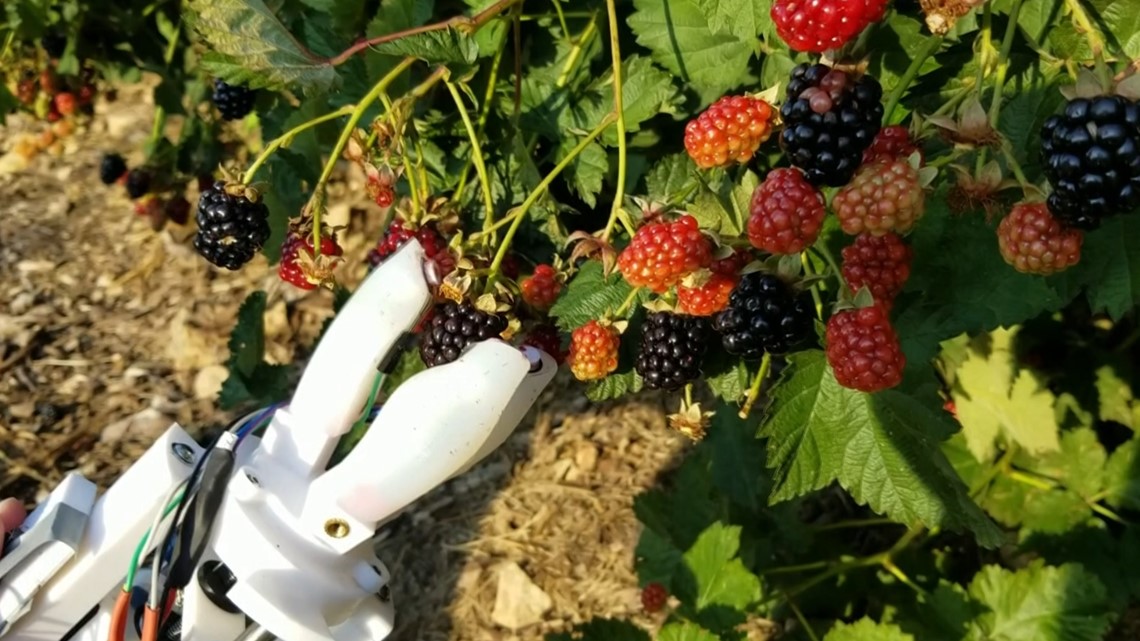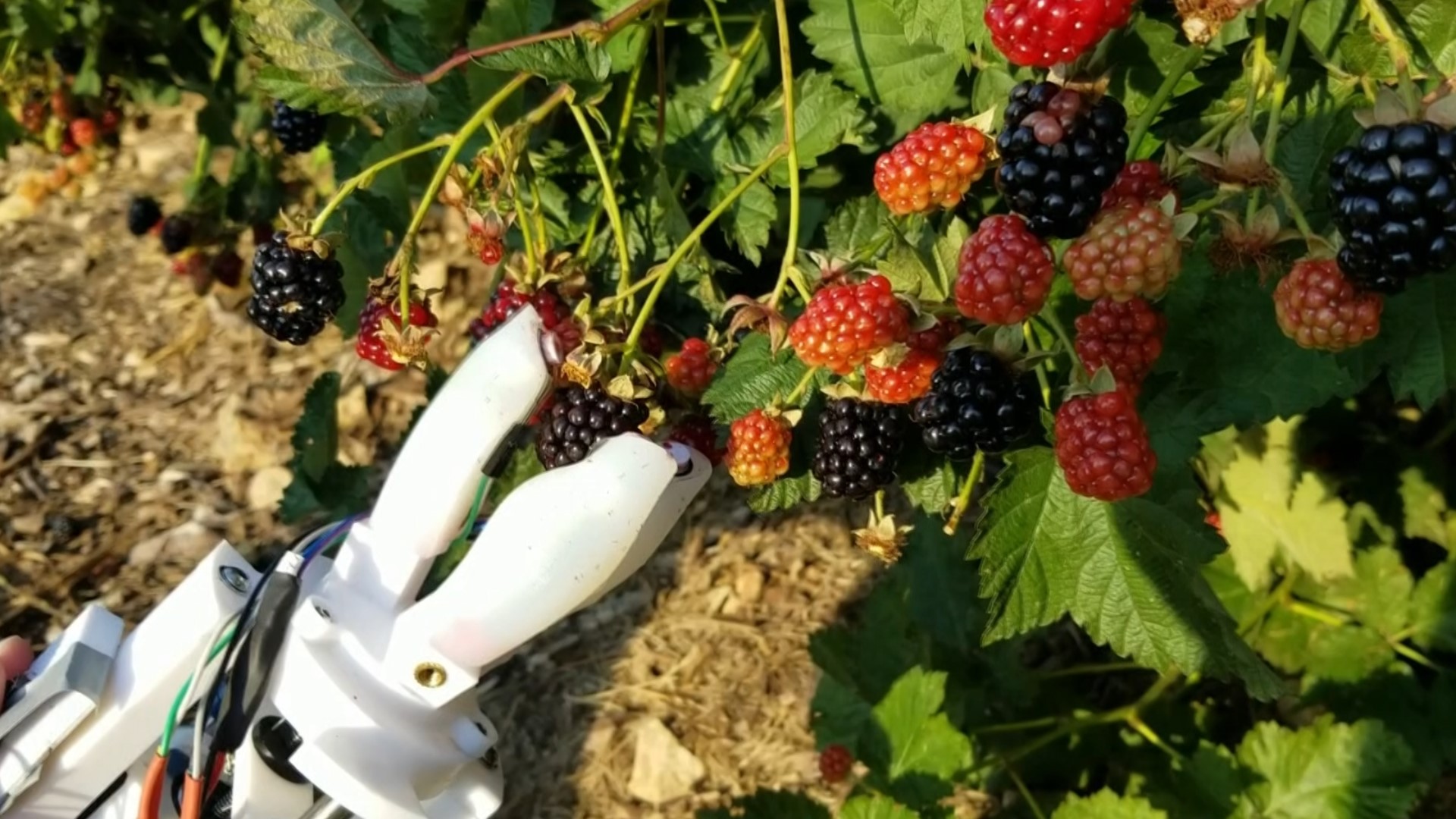ARKANSAS, USA — It’s almost summertime, and with it comes many fruit seasons in Arkansas.
Farmers will be busier than ever as they harvest their products, but could you imagine if those picking the fruit were made of wires and silicone?
Scientists are researching the possibilities of a blackberry-picking robot.
In 2020, students at the University of Arkansas, Anthony Gunderman and Andrea L. Myers spent time picking blackberries, but all in the name of science. “I didn't grow up on a farm. But I did play outside a lot," said Gunderman. The students have been using flexible force sensors that are worn on their fingertips.
“It was funny to be out there with all the wires on picking those like, you know, with sensors on my hand and we were in the middle of COVID so I had a mask and all that I was like, 'I'm just a Fruit Ninja,'" Myers said.
Gunderman added that they harvested over 2,000 blackberries with these sensors.
“The University of Arkansas System is really responsible for a lot of the blackberry cultivars that are being released in the world," explained research scientist Renee Threlfall.
She went on to say, “It's millions of millions of dollars every year that the system receives for blackberry plant patents."
Renee Threlfall is a research scientist at the University of Arkansas. While the Natural State is a leading blackberry breeder, picking the fruit is the same for everyone.
ThrelfaIl said, “It has a bigger industry and bigger challenges because you have to pick the berries individually, put them in a clamshell, and then sell them in the store. And there's no other options for fresh market. No other options, like, you have to have a human person that harvests the berries.”


That’s why food scientists and engineers in Georgia and Arkansas are collaborating to make a blackberry-picking robot. The fruit has a season that typically lasts two and a half months: June, July and August.
“Since it's in a short period of time, you have to get all the berries that you can before they go bad. So that's why it's important to have an automated picker because there's just not enough workforce out there to get all the blackberries when they are ripe,” said Myers.
With concerns over the robot taking jobs, Threlfall assured there were more than enough to go around.
“In agriculture, and particularly in horticultural produce, tomatoes, squash—I mean, anything— I'm trying to think of other crops... grape, and wine industry, we all have issues with finding labor at the time we need them because we don't need labor all year long," Threlfall explained.
“We try to deploy some crossing mechanism that can enable some safe interaction between the robot hardware and also some fragile objects," Yue Chen at Georgia Tech said.
Chen is a biomedical engineer working on what would be a soft touch robot for their research. He’s using his experience with soft-touch robotics from the medical field to deal with the fragility of picking blackberries.
“When you're buying a clamshell of blackberries in the grocery store, I bet you look at those berries, and you're trying to find ones that look good in the clamshell. And so that's why we're kind of looking at these soft-touch robots." Threlfall stated.
Although the biped, 10-armed, and autonomous robot could cost $20,000-$30,000, it would be solving a labor shortage issue and provide an efficient harvest.
“Your ideal picking time would be actually at night. So you could have an automated machine that's picking at night, which is very hard for a human to do, or early in the morning. Some of the temperatures of the environment do impact the quality of the fruit in post-harvest storage." explained Threlfall.
Gunderman estimated “eight hours a day, for 10 months, I think you were supposed to be able to recoup your cost if you could use it continuously. So you'd have to like, find a way to harvest multiple farms over and over again, right? It takes a couple of summers to get your money back. But I think it actually is potentially feasible."
Researchers say there could be potential cost-saving measures made for the final product. They're continuing the research with a four-year grant recently awarded to biomedical engineer Chen. They’ll continue to work at Ritter Farms in Judsonia and evaluate the robot with a variety of parts. The food scientists are also interested in exploring a visual tool for the robot so that it may distinguish ripe blackberries.
Download the 5NEWS app on your smartphone:
Stream 5NEWS 24/7 on the 5+ app: How to watch the 5+ app on your streaming device
To report a typo or grammatical error, please email KFSMDigitalTeam@tegna.com.

